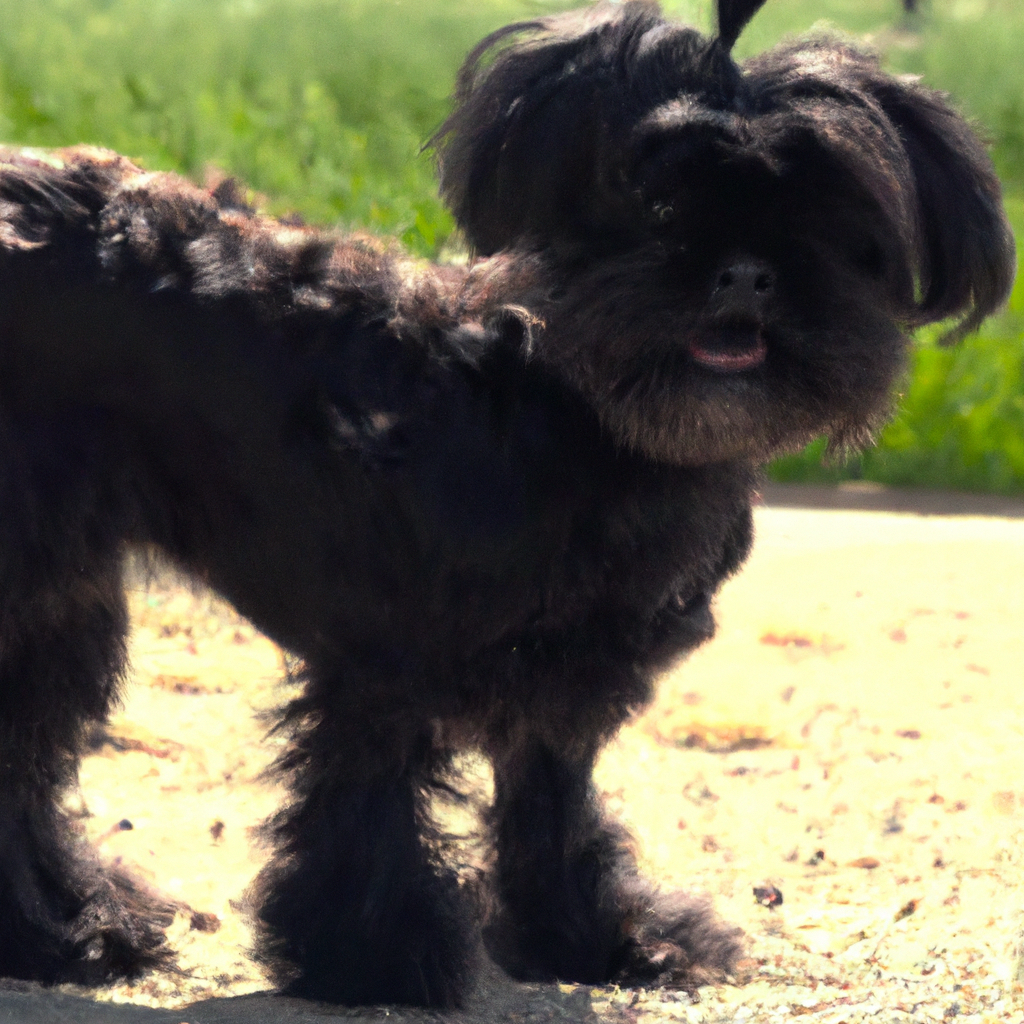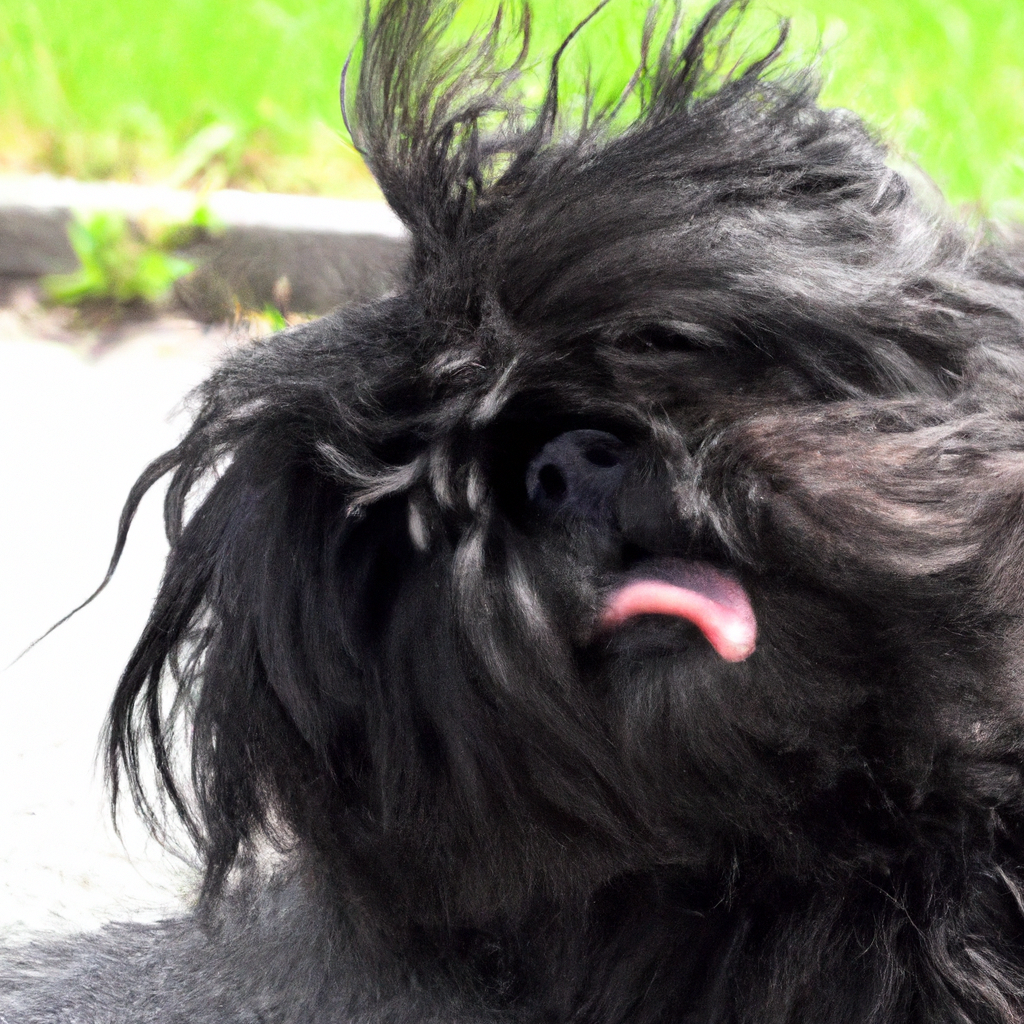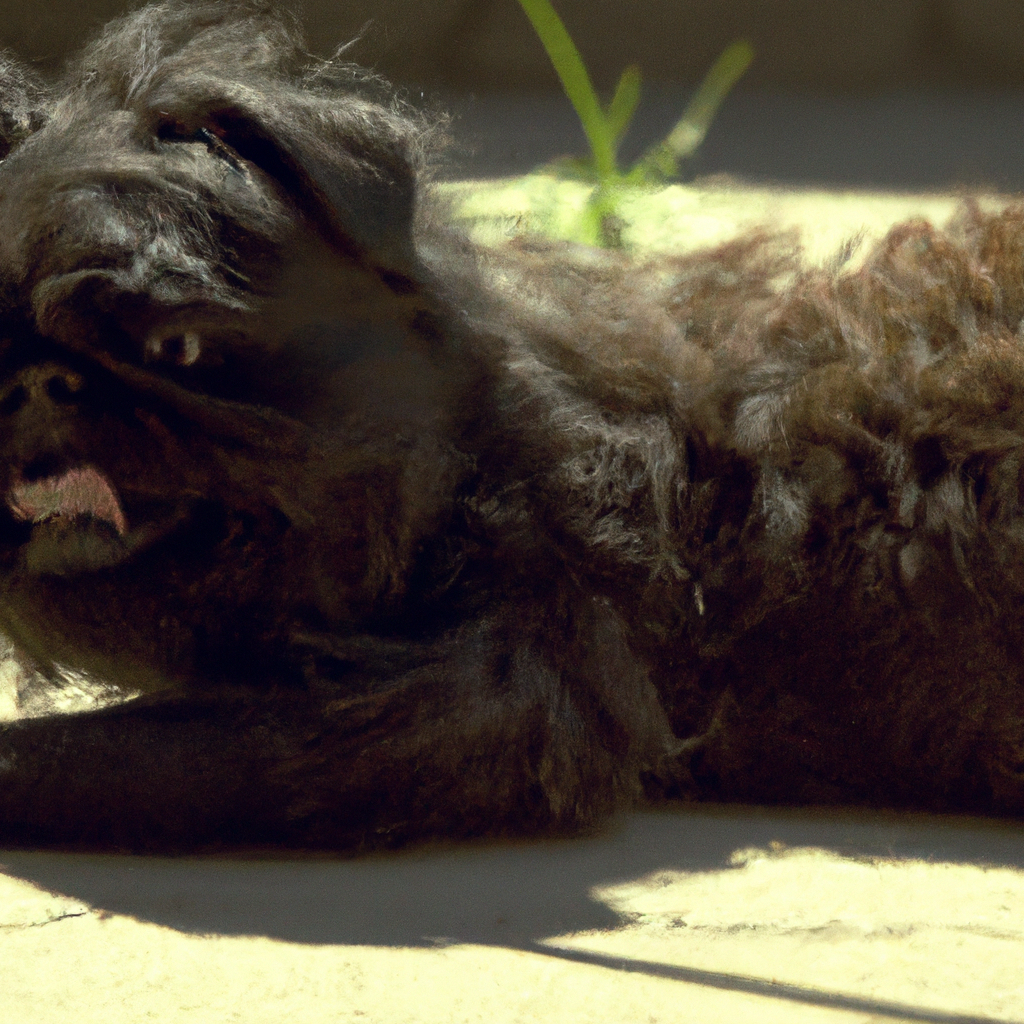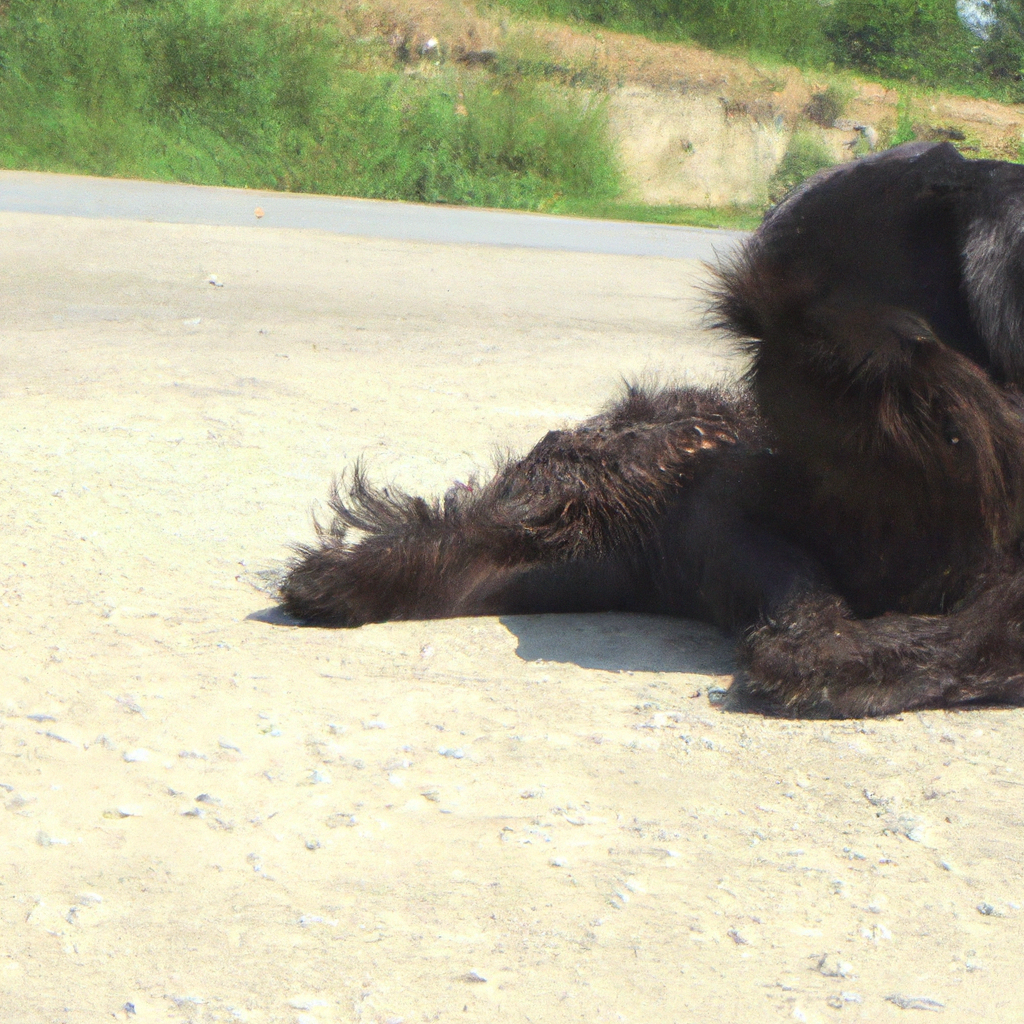The Affenpinscher, during breeding season, exhibits a distinct temperament characterized by increased energy, assertiveness, and sometimes territorial behavior. This small but fearless breed, known for its loyalty and intelligence, may become more protective and display heightened alertness. Despite these changes, the Affenpinscher maintains its playful and adventurous spirit, making it a fascinating breed to observe during this period.
Understanding the Affenpinscher’s Temperament During Breeding Season
The Affenpinscher, often referred to as the “Monkey Terrier” due to its primate-like appearance and playful nature, is a small but feisty breed. Known for their loyalty, intelligence, and spunk, these dogs are a favorite among many pet owners. However, like all breeds, the Affenpinscher’s temperament can change during the breeding season, and understanding these changes is crucial for any potential breeder or owner.
During the breeding season, the Affenpinscher’s normally playful and energetic demeanor can become more intense. This is a natural response to the hormonal changes that occur during this time. The dogs may become more territorial and protective, which can manifest in increased barking or even nipping. It’s important to remember that this is not a sign of aggression, but rather a natural instinct to protect their potential mate and future offspring.
In addition to becoming more protective, Affenpinschers may also become more affectionate during the breeding season. They may seek out more attention from their owners, often following them around the house or wanting to be held more often. This is a sign of their increased need for companionship and security during this time.
However, while these changes in behavior are normal, they can also be challenging for owners who are not prepared. The increased energy and protectiveness can be overwhelming, especially for first-time breeders. It’s important to approach these changes with patience and understanding. Providing the dogs with plenty of exercise and mental stimulation can help manage their energy levels and reduce potential behavioral issues.
It’s also crucial to provide a safe and comfortable environment for the Affenpinschers during the breeding season. This includes providing them with a quiet and secure space where they can retreat if they feel overwhelmed. Regular vet check-ups are also essential to ensure the dogs are healthy and ready for breeding.
Despite these challenges, breeding Affenpinschers can also be a rewarding experience. These dogs are known for their strong bonds with their owners, and this bond can become even stronger during the breeding season. Watching them care for their offspring and seeing the new puppies grow and develop can be a truly heartwarming experience.
In conclusion, understanding the Affenpinscher’s temperament during the breeding season is crucial for any potential breeder or owner. While their behavior may change during this time, with patience, understanding, and proper care, these changes can be managed effectively. And despite the challenges, the rewards of breeding these charming and affectionate dogs are well worth the effort. So, if you’re considering breeding Affenpinschers, remember to prepare yourself for the changes that come with the breeding season, and look forward to the joy and fulfillment that comes with raising these delightful dogs.
How Breeding Season Affects the Affenpinscher’s Behavior
The Affenpinscher, often referred to as the “Monkey Dog” due to its primate-like appearance and playful nature, is a small breed that is known for its distinctive personality. These dogs are typically energetic, adventurous, and somewhat stubborn, but they are also incredibly loyal and protective of their families. However, like all animals, the Affenpinscher’s behavior can change during breeding season, and it’s important for owners to understand these changes to ensure the well-being of their furry friends.
Breeding season, which typically occurs once or twice a year for dogs, can bring about a variety of behavioral changes in the Affenpinscher. One of the most noticeable changes is an increase in restlessness and energy. Affenpinschers are already known for their lively and spirited nature, but during breeding season, this energy can be amplified. They may become more active, playful, and even a bit more mischievous than usual. This is a natural response to the hormonal changes that occur during this time, and while it can be a bit overwhelming for owners, it’s important to remember that this is a normal part of the breeding cycle.
In addition to increased energy, Affenpinschers may also become more territorial during breeding season. This breed is known for its protective nature, and this trait can become more pronounced during this time. They may become more possessive of their toys, food, and even their favorite spots in the house. They may also become more wary of strangers and other animals, and may display signs of aggression if they feel threatened. This is another natural response to the hormonal changes that occur during breeding season, and it’s important for owners to be aware of this behavior and manage it appropriately.
Another common behavior change during breeding season is an increase in vocalization. Affenpinschers are not typically a noisy breed, but during breeding season, they may become more vocal. They may bark more often, whine, or even howl. This is often a way for them to express their frustration or excitement during this time, and while it can be a bit noisy, it’s another normal part of the breeding cycle.
While these behavioral changes can be challenging for owners, it’s important to remember that they are a normal part of the Affenpinscher’s breeding cycle. It’s also important to remember that every dog is unique, and not all Affenpinschers will display the same behaviors during breeding season. Some may become more energetic and playful, while others may become more territorial and vocal.
During this time, it’s crucial for owners to provide their Affenpinschers with plenty of exercise and mental stimulation to help manage their increased energy levels. It’s also important to provide them with a safe and comfortable environment where they can feel secure. And most importantly, it’s essential for owners to be patient and understanding with their Affenpinschers during this time. With the right care and attention, the Affenpinscher’s breeding season can be a manageable and even enjoyable time for both the dog and its owner.
The Impact of Breeding Season on Affenpinscher’s Mood Swings
The Affenpinscher, often referred to as the “Monkey Dog” due to its primate-like appearance and playful nature, is a small but feisty breed. Known for their loyalty, intelligence, and spunky personality, these dogs are a favorite among many pet owners. However, during the breeding season, the Affenpinscher’s temperament can undergo some noticeable changes.
Breeding season, a period when dogs are biologically prepared to mate, can significantly impact an Affenpinscher’s mood swings. This is a time when their hormones are in overdrive, leading to behavioral changes that can sometimes be challenging for their owners. It’s important to understand these changes to ensure that your Affenpinscher remains happy and healthy during this time.
Typically, Affenpinschers are known for their stable and even-tempered disposition. They are generally friendly, sociable, and love to be the center of attention. However, during the breeding season, you might notice your Affenpinscher becoming more territorial and aggressive. This is a natural response to their heightened hormones and is their way of asserting dominance and attracting a mate.
Male Affenpinschers, in particular, may exhibit more aggression during this time. They may become more protective of their space and belongings, and may even show signs of aggression towards other male dogs. This is their instinctual way of competing for a potential mate.
On the other hand, female Affenpinschers may become more affectionate and clingy during the breeding season. They may seek more attention and physical contact from their owners. This is a sign that they are in heat and are ready to mate.
It’s also worth noting that Affenpinschers, like many other breeds, may experience changes in their eating habits during the breeding season. They may eat more or less than usual, depending on their hormonal changes. Some may even show signs of picky eating or food guarding.
While these changes can be challenging, it’s important to remember that they are a normal part of your Affenpinscher’s life cycle. As a responsible pet owner, it’s crucial to provide your dog with the care and support they need during this time. This includes maintaining a balanced diet, providing plenty of exercise, and ensuring they have a safe and comfortable environment.
If your Affenpinscher’s behavior becomes too aggressive or disruptive, it may be worth consulting with a professional dog trainer or a veterinarian. They can provide guidance and strategies to help manage your dog’s behavior during the breeding season.
In conclusion, the breeding season can bring about significant changes in an Affenpinscher’s temperament. From increased aggression in males to heightened affection in females, these changes can be a lot to handle for both the dog and the owner. However, with understanding, patience, and the right support, you can help your Affenpinscher navigate this challenging time successfully. Remember, these changes are temporary and your lovable, playful, and loyal Affenpinscher will soon return to their usual self.
Affenpinscher’s Aggression Levels During Breeding Season
Affenpinschers, often referred to as “Monkey Terriers” due to their distinct primate-like appearance, are small but mighty dogs known for their playful and adventurous spirit. However, during the breeding season, these feisty little creatures can exhibit a change in temperament, which can sometimes be misconstrued as aggression.
The breeding season can be a challenging time for any dog breed, and the Affenpinscher is no exception. This period often brings about a surge in hormones, which can lead to behavioral changes. For Affenpinschers, these changes can manifest as increased territoriality, restlessness, and sometimes, heightened aggression.
It’s important to note that this shift in behavior is not indicative of the Affenpinscher’s overall temperament. Outside of the breeding season, these dogs are known for their fun-loving and sociable nature. They are typically friendly with other dogs and people, making them excellent companions. However, during the breeding season, their protective instincts can kick in, leading to a more assertive and defensive demeanor.
This heightened aggression is often directed towards other dogs, particularly males. Affenpinschers, despite their small size, are not afraid to stand their ground. They can become particularly protective of their space and their potential mates, leading to confrontations with other dogs.
However, it’s crucial to understand that this behavior is not a sign of an inherently aggressive or dangerous dog. Instead, it’s a natural response to the changes happening within their bodies. As a pet owner, it’s essential to recognize these changes and adjust your approach accordingly.
During the breeding season, it’s advisable to give your Affenpinscher some extra space and patience. Try to limit their interactions with other dogs, especially if they seem agitated or stressed. It’s also a good idea to provide them with plenty of physical and mental stimulation to help them burn off any excess energy.
While it might be tempting to punish or scold your Affenpinscher for this change in behavior, it’s important to remember that they are not acting out of malice. They are simply responding to their instincts. Instead of punishment, try using positive reinforcement techniques to encourage good behavior. Reward them for calm and non-aggressive actions, and gradually they will learn to associate these behaviors with positive outcomes.
It’s also worth noting that not all Affenpinschers will exhibit heightened aggression during the breeding season. Like humans, dogs are individuals, and their reactions to hormonal changes can vary. Some Affenpinschers may become more affectionate and clingy, while others may become more independent and aloof.
In conclusion, while the breeding season can bring about a change in your Affenpinscher’s temperament, it’s important to remember that this is a temporary phase. With patience, understanding, and the right approach, you can help your Affenpinscher navigate this challenging period. Remember, your Affenpinscher’s behavior during the breeding season is not a reflection of their overall character. These lovable, playful, and adventurous dogs are just responding to their natural instincts, and with your support, they can return to their usual, sociable selves once the breeding season is over.
The Role of Hormones in Affenpinscher’s Temperament During Breeding Season
The Affenpinscher, affectionately known as the “Monkey Dog” due to its primate-like appearance and playful nature, is a small but feisty breed. These dogs are known for their loyalty, intelligence, and boldness. However, during the breeding season, you may notice a significant change in your Affenpinscher’s temperament. This shift is primarily due to the role of hormones, which play a crucial part in the breeding process.
As the breeding season approaches, the Affenpinscher’s body undergoes hormonal changes that can affect its behavior. The most prominent hormones involved are estrogen, progesterone, and testosterone. These hormones are responsible for preparing the dog’s body for potential pregnancy and influencing its behavior to attract a mate.
Estrogen, for instance, is a hormone that plays a significant role in the female Affenpinscher’s reproductive cycle. It triggers the onset of the heat cycle, preparing the body for potential pregnancy. During this period, you may notice your female Affenpinscher becoming more affectionate and seeking more attention than usual. This behavior is a result of increased estrogen levels, which stimulate the dog’s desire to mate.
On the other hand, progesterone levels rise after ovulation, preparing the body for potential pregnancy. If the dog becomes pregnant, progesterone helps maintain the pregnancy. However, even if the dog is not pregnant, progesterone can still influence behavior. High levels of this hormone can cause the dog to exhibit nesting behaviors, such as gathering toys or other objects and arranging them in a specific area.
Testosterone, the primary male hormone, also plays a significant role in the Affenpinscher’s temperament during the breeding season. Increased testosterone levels can make male Affenpinschers more territorial and aggressive. They may start marking their territory more frequently and may become more protective of their space. This behavior is a natural response to the increased testosterone levels, as the dog is trying to establish dominance and attract a mate.
However, it’s important to note that while hormones play a significant role in influencing the Affenpinscher’s temperament during the breeding season, they are not the only factor. The dog’s environment, diet, and overall health can also impact its behavior. For instance, a dog that is stressed or unwell may exhibit behavioral changes, regardless of hormonal fluctuations.
Moreover, each Affenpinscher is unique, and not all dogs will react to hormonal changes in the same way. Some dogs may become more affectionate, while others may become more aggressive. It’s essential to monitor your dog’s behavior during the breeding season and consult with a vet if you notice any drastic changes.
In conclusion, the Affenpinscher’s temperament during the breeding season is significantly influenced by hormonal changes. These hormones prepare the dog’s body for potential pregnancy and influence its behavior to attract a mate. However, other factors such as the dog’s environment, diet, and overall health can also impact its behavior. Understanding these changes can help you better care for your Affenpinscher during the breeding season and ensure its well-being.
Affenpinscher’s Anxiety and Stress During Breeding Season
Affenpinschers, often referred to as “Monkey Terriers” due to their distinct primate-like appearance, are small but mighty dogs known for their playful and adventurous spirit. However, during the breeding season, these feisty little creatures can exhibit signs of anxiety and stress, which can be a cause for concern for their owners.
Breeding season can be a challenging time for any dog breed, and Affenpinschers are no exception. This period can trigger a range of emotions and behaviors in these dogs, which can be quite surprising, especially if you’re used to their typically confident and bold demeanor. It’s important to understand that these changes are quite normal and are a part of their natural breeding cycle.
During this time, you may notice your Affenpinscher becoming more restless or agitated. They may pace around the house, whine more than usual, or even become more clingy. These are all signs of anxiety, which can be heightened during the breeding season due to hormonal changes. It’s crucial to remember that your Affenpinscher is not acting out, but rather responding to the internal changes they are experiencing.
Stress is another common issue for Affenpinschers during the breeding season. This can manifest in various ways, such as changes in eating habits, excessive licking or chewing, or even aggression. It’s essential to monitor these behaviors closely, as prolonged stress can lead to health issues.
So, how can you help your Affenpinscher navigate through this challenging period? The key lies in providing a calm and supportive environment. Try to maintain a regular routine as much as possible, as this can provide a sense of security and stability. Regular exercise can also be beneficial, as it can help burn off excess energy and reduce anxiety.
Another effective strategy is to provide mental stimulation. Affenpinschers are intelligent dogs that thrive on problem-solving and interactive play. Providing puzzle toys or engaging them in training exercises can help distract them from their anxiety and stress.
It’s also important to show patience and understanding during this time. Your Affenpinscher may test your patience with their unusual behavior, but it’s crucial to remember that they are going through a difficult time. Avoid punishing them for their behavior, as this can only increase their stress levels. Instead, try to redirect their energy in a positive way.
In some cases, it may be necessary to seek professional help. If your Affenpinscher’s anxiety or stress seems severe or prolonged, it’s a good idea to consult with a veterinarian or a professional dog behaviorist. They can provide guidance and may recommend treatments such as medication or behavioral therapy.
In conclusion, while the breeding season can be a stressful time for Affenpinschers, with the right approach, you can help them navigate through it. By understanding their behavior, providing a supportive environment, and seeking professional help when necessary, you can ensure that your Affenpinscher remains healthy and happy during this challenging period. Remember, your Affenpinscher’s well-being is a testament to your care and understanding as a pet parent.
Coping with Affenpinscher’s Temperamental Changes in Breeding Season
Affenpinschers, often referred to as “Monkey Terriers” due to their distinct primate-like appearance, are small but mighty dogs known for their playful and adventurous spirit. However, during the breeding season, these feisty little creatures can exhibit a change in temperament that can be quite challenging for their owners. Understanding these changes and knowing how to cope with them can make the breeding season a less stressful time for both the Affenpinscher and its owner.
Affenpinschers are generally known for their confident and fearless nature. They are often described as being bold and active, with a dash of stubbornness. However, during the breeding season, these traits can become more pronounced. Male Affenpinschers may become more territorial and protective, while females may exhibit mood swings and become more sensitive or irritable. These changes are completely normal and are a part of the dog’s natural breeding behavior.
One of the most noticeable changes in an Affenpinscher’s temperament during the breeding season is an increase in aggression. This is particularly true for males, who may become more assertive and dominant. They may start marking their territory more frequently and may even show aggression towards other dogs. It’s important to remember that this is a natural instinct and not a sign of a behavioral problem. However, it’s crucial to manage this aggression to prevent any potential conflicts or injuries.
To cope with this increased aggression, it’s recommended to provide your Affenpinscher with plenty of physical and mental stimulation. Regular exercise can help to burn off excess energy and reduce restlessness, while mental stimulation can help to keep their mind occupied and reduce boredom. Puzzle toys, agility training, and interactive games can all be beneficial.
Another common change in temperament during the breeding season is an increase in anxiety. This is particularly true for female Affenpinschers, who may become more nervous or anxious as they prepare for potential motherhood. They may become more clingy and seek out more attention from their owners. Providing a safe and comfortable environment can help to alleviate some of this anxiety. It’s also important to provide plenty of reassurance and affection during this time.
In addition to these changes, Affenpinschers may also exhibit changes in their eating habits during the breeding season. They may eat more or less than usual, or they may become more picky about their food. It’s important to monitor their eating habits closely and consult with a vet if there are any significant changes.
Despite these challenges, it’s important to remember that these changes in temperament are temporary and are a natural part of the breeding process. With patience, understanding, and a little bit of extra care, you can help your Affenpinscher navigate through the breeding season with minimal stress.
In conclusion, while the breeding season can bring about some significant changes in an Affenpinscher’s temperament, these changes are completely normal and manageable. By understanding these changes and knowing how to cope with them, you can ensure that the breeding season is a positive experience for both you and your Affenpinscher. After all, the Affenpinscher’s spirited and lively nature is part of what makes them such a beloved breed, and with the right approach, even the challenges of the breeding season can be navigated with ease.
The Affenpinscher’s Protective Instincts During Breeding Season
The Affenpinscher, often referred to as the “Monkey Dog” due to its simian-like appearance and playful nature, is a small but mighty breed. Known for their loyalty, intelligence, and protective instincts, these dogs are a favorite among many pet owners. However, during breeding season, the Affenpinscher’s temperament can undergo a noticeable shift, becoming even more protective and territorial.
Breeding season is a critical time for any animal, and the Affenpinscher is no exception. During this period, their protective instincts are heightened, and they become more vigilant about their surroundings. This is a natural response, as they are driven by the instinct to protect their potential offspring and ensure the continuation of their lineage.
Affenpinschers are known for their fearless nature, and this trait becomes even more pronounced during breeding season. Despite their small size, they are not afraid to confront larger dogs or even humans if they perceive a threat. This protective instinct is not limited to their own kind; they are also known to be protective of their human family members.
During breeding season, you may notice your Affenpinscher becoming more territorial. They may start marking their territory more frequently and may become more aggressive towards other dogs that encroach on their space. This is a normal behavior during this time and is a sign that your dog is ready to mate.
However, it’s important to remember that while this heightened protective instinct is natural, it should not be encouraged or allowed to escalate into aggression. As a responsible pet owner, it’s your job to ensure that your Affenpinscher’s protective instincts are channeled in a healthy and safe manner.
One way to do this is by providing your dog with plenty of physical and mental stimulation. Regular exercise can help to burn off excess energy and reduce feelings of restlessness, while mental stimulation can help to keep their mind sharp and focused.
Socialization is also key during this time. Exposing your Affenpinscher to a variety of different environments, people, and animals can help to reduce feelings of fear and aggression. It’s also a good idea to reinforce positive behaviors with rewards and praise, to encourage your dog to behave in a calm and controlled manner.
It’s also worth noting that while the Affenpinscher’s protective instincts are heightened during breeding season, this does not mean that they become unmanageable or dangerous. With the right training and socialization, these dogs can continue to be loving and loyal companions, even during this critical period.
In conclusion, the Affenpinscher’s temperament during breeding season is characterized by heightened protective instincts and territorial behavior. However, with the right approach, these behaviors can be managed and even used to strengthen the bond between you and your pet. Remember, your Affenpinscher is not acting out of malice, but out of a deep-seated instinct to protect. With patience, understanding, and a little bit of training, you can help your dog navigate this challenging time in a healthy and positive way.The conclusion about Affenpinscher’s temperament during breeding season is not significantly different from their usual behavior. They remain playful, adventurous, curious, and stubborn. However, they may exhibit increased territorial behavior and aggression due to hormonal changes.




